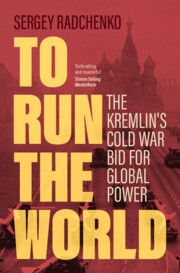12 - Vietnam
from Part III - Decline
Published online by Cambridge University Press: 30 May 2024
Summary
By the early 1960s, Vietnam was firmly lodged in China's embrace. Khrushchev's commitment to Vietnam was limited, as he focused instead on relations with the United States. However, after his ouster in October 1964, Khrushchev's successor, Leonid Brezhnev, began to see Vietnam as an opportunity to demonstrate Moscow's revolutionary leadership. The Soviet Union's support for Vietnam served two purposes: establishing credibility in the revolutionary world and asserting its position as America's equal. As the war escalated, both Moscow and Beijing's commitment to Vietnam grew. Despite disagreements over military tactics, the Soviets won Hanoi's loyalty, largely because they supplied Vietnam with badly needed military aid. Yet the end of the war became a Pyrrhic victory for the Soviets. Moscow ended up investing heavily in Vietnam's reconstruction and industrialization, which contributed to the Soviet Union's later insolvency. This chapter highlights the importance of understanding the Vietnam War not only as an East–West struggle but also as an East–East struggle, with the Soviet Union and China competing for power and influence across the region.
- Type
- Chapter
- Information
- To Run the WorldThe Kremlin's Cold War Bid for Global Power, pp. 331 - 358Publisher: Cambridge University PressPrint publication year: 2024

